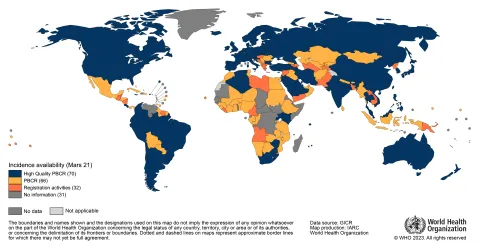Global Initiative for Cancer Registries (GICR)
The Global Initiative for Cancer Registry Development (GICR) is a multi-partner response to the disparity in robust cancer statistics across the globe, led by the International Agency for Research on Cancer (IARC) and Union for International Cancer Control (UICC).

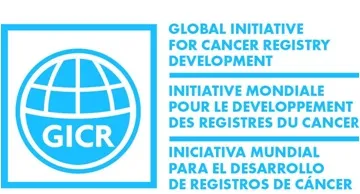
The Global Initiative for Cancer Registry Development (GICR) is a multi-partner response to the disparity in robust cancer statistics across the globe, led by the International Agency for Research on Cancer (IARC) and Union for International Cancer Control (UICC).
The initiative is designed to:
- Empower countries to produce reliable and high-quality information on the burden of cancer
- Improve the breadth and quality of local data through a population-based registry approach
- Strengthen health information systems
- Facilitate planning of prevention, early detection, diagnosis, treatment and care of cancer.
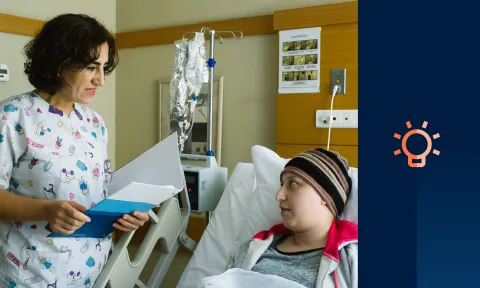
Cancer surveillance by cancer type and stage through population-based registries are foundations for providing the incidence and mortality data for public health use, identifying trends and inequalities to monitor and shape the cancer response.
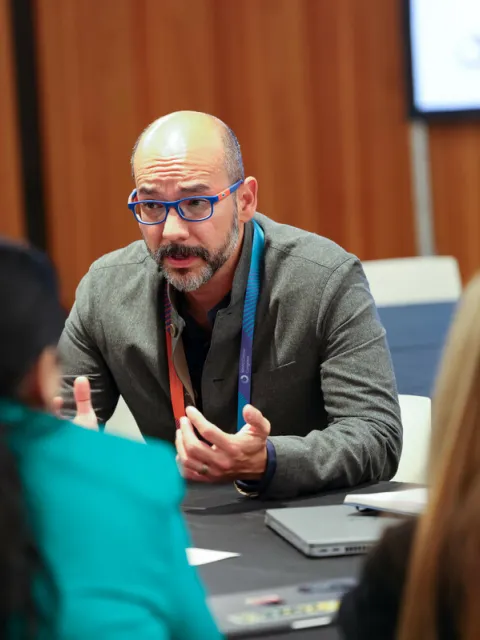
UICC fosters a learning culture across the cancer community, encourages collaboration and provides a range of knowledge sharing opportunities.
Sharing knowledge

UICC's Virtual Dialogues provide members, and the cancer community, with regular opportunities to connect, exchange knowledge, access expert insights, and share solutions from the comfort of one's office or home.
Virtual Dialogues
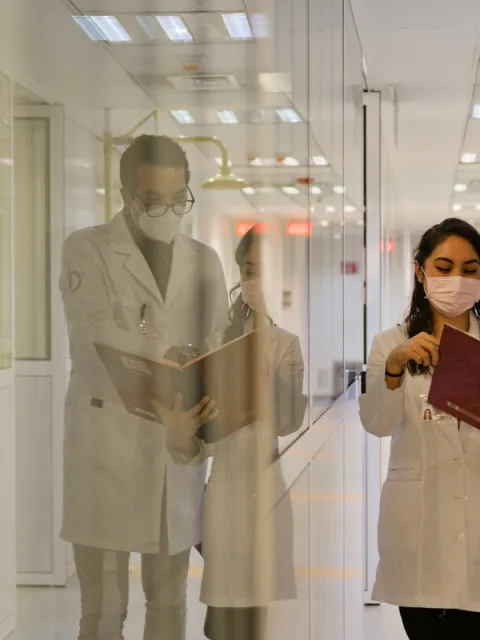
Established in 1962, the Fellowships is one of UICC's oldest and most established portfolio of programmes.
Fellowships
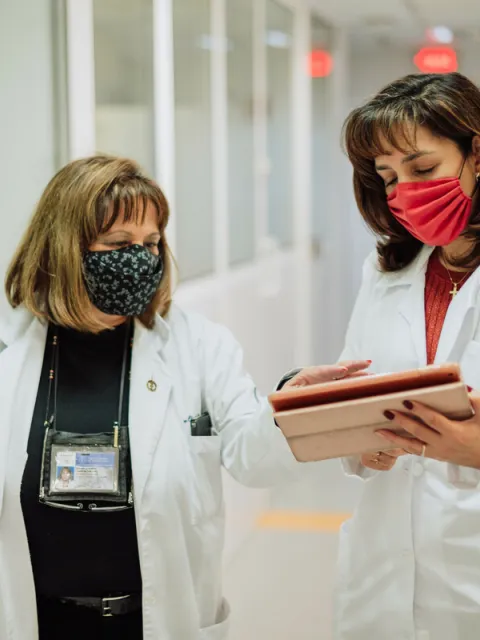
TNM (“Tumour”, “Nodes”, “Metastases”) cancer staging system is a globally recognised standard and unified system for classifying the extent of spread of cancer.
UICC and the TNM Classification of Malignant...
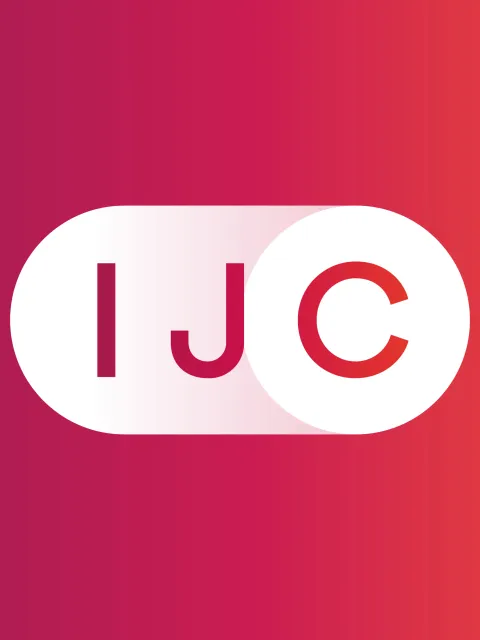
Learn more about the International Journal of Cancer and the JCO Global Oncology (JCO GO).
UICC journals
Last update
Friday 01 September 2023